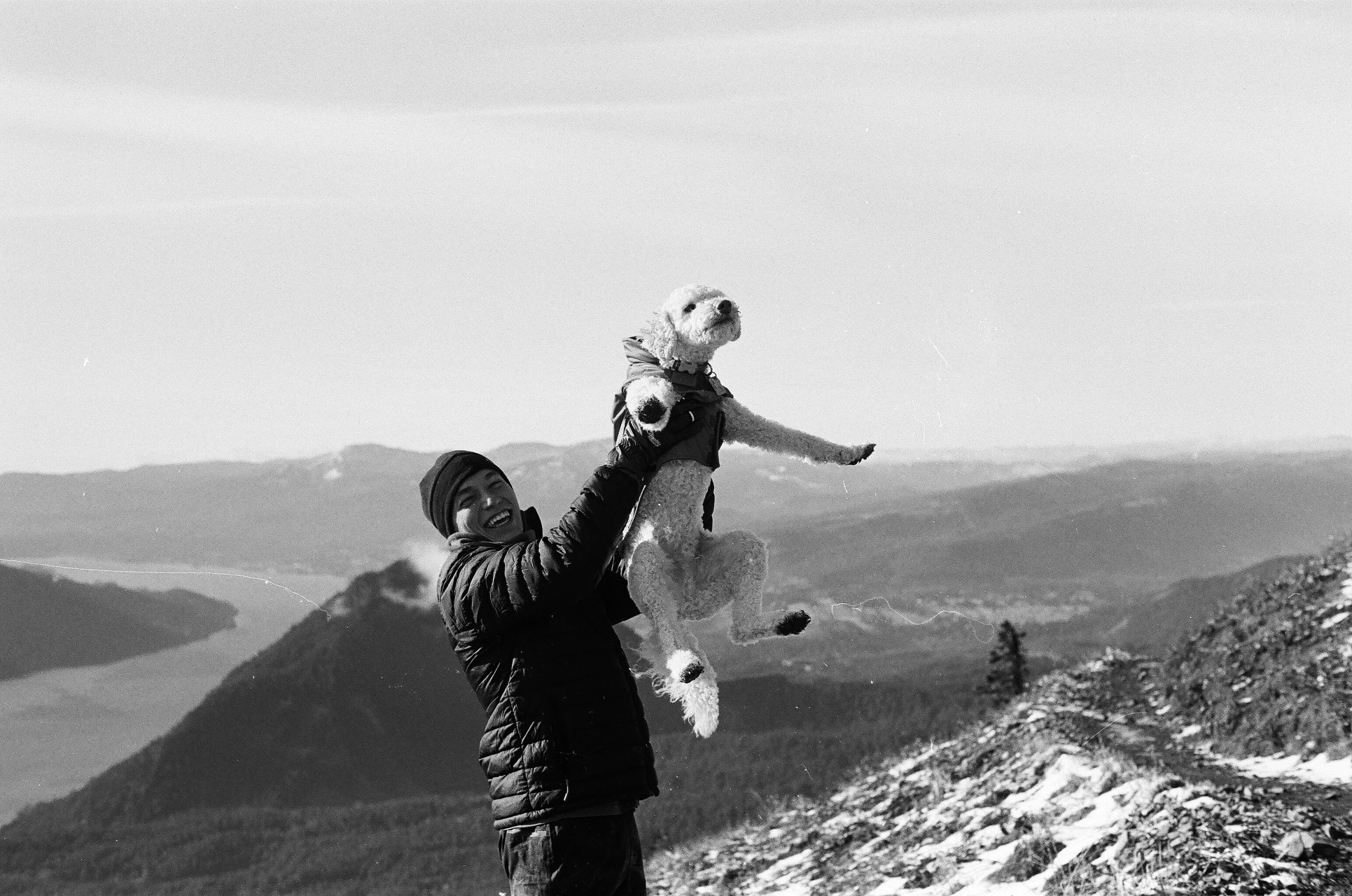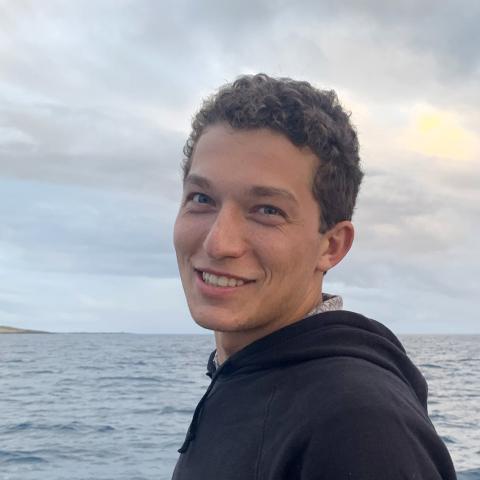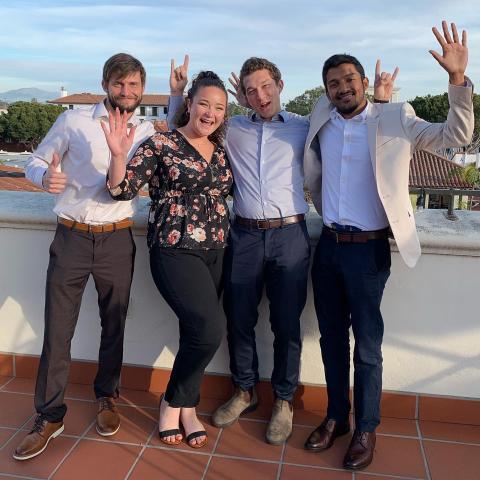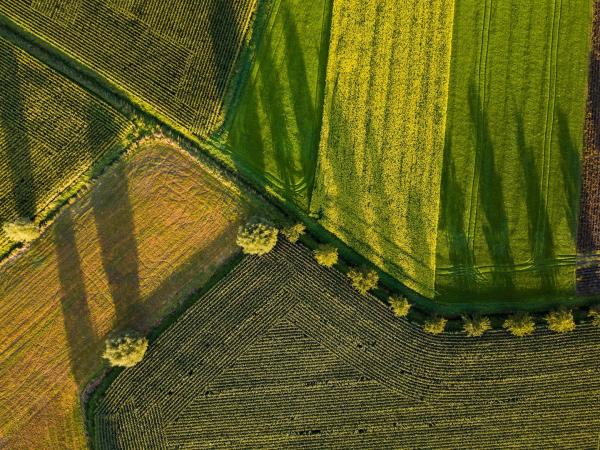

The Bren School interviewed students in the inaugural cohort of the Master of Environmental Data Science program - the MEDS Class of 2022 - to ask them what environmental issues are important to them, why they decided to attend Bren, and how the immersion in data science has changed their outlook.
Joe DeCesaro (MEDS '22) holds a Bachelor’s Degree in Materials Engineering from Cal Poly San Luis Obispo. After graduating in 2018, Joe worked as an environmental engineer consultant at Ashworth Leininger Group. His work mostly focused on environmental compliance for a variety of manufacturing facilities or building operations. Some of these projects included air permitting work in various California air districts, onsite hazardous waste and materials management, and writing Spill Prevention, Countermeasure, and Control (SPCC) Plans. With the completion of this Master’s program, Joe wants to use data science to improve renewable energy development and implementation both in the United States and internationally.
What environmental issues are important to you?
JD: It's so hard to choose because they all feel so important but I would have to say energy decarbonization and water resources.
How did you learn about MEDS and why did you choose Bren?
JD: I found out about MEDS by actually hearing about the MESM program from a friend and looking for information online. When I got to the Bren website I saw that the MEDS program was starting and was exactly what I was looking for. Data science has always intrigued me, especially with how prevalent it has become in our society, so this was the perfect program for me to pivot my career and keep it environmentally focused.
What is something that has been surprising about going to grad school?
JD: I have really appreciated how much the program wants the students feedback and recommendations on how to make the program better and for actually implementing them.
What are your thoughts about using data science to advance environmental solutions, compared to when you first started the program?
JD: One thing that has been interesting to see is that having subject matter expertise or experience is important to better apply and understand what data science tools/methods are telling you about a problem. Data science can help identify possible solutions but its not a silver bullet to environmental problems.

How has your capstone project work affected your career goals?
JD: I am interested in shifting my career towards renewable energy so my capstone project has been ideal for this career goal!
- Learn more about Joe's capstone project: Renewable Energy Siting Predictors Observed from National Data for Wind and Solar
What's your advice for prospective MEDS students?
JD: If you can, try to talk to someone who is working as a data scientist at a company you are interested in to see if their work matches with what you would like out of your career. Also, don't be afraid to reach out to students in the program as they would be happy to talk with you about it in better detail.
What's an interesting fact about you?
JD: I can legally marry people in the state of Oregon!
Thanks, Joe!


